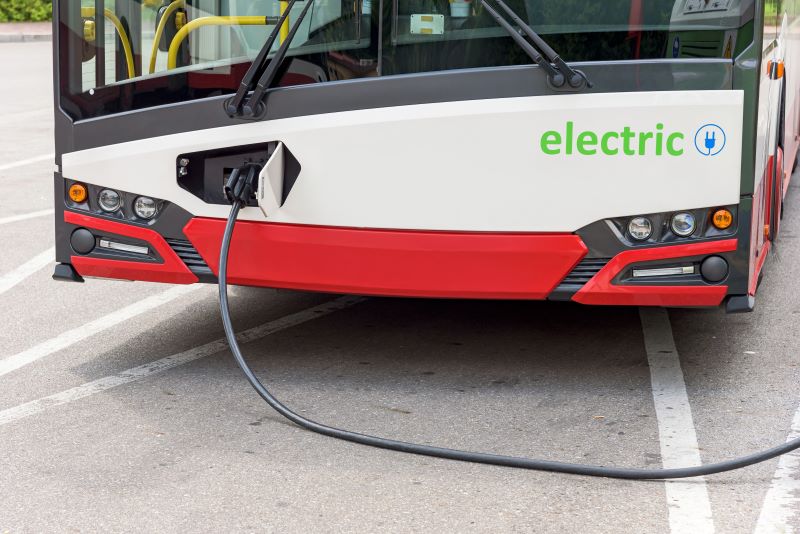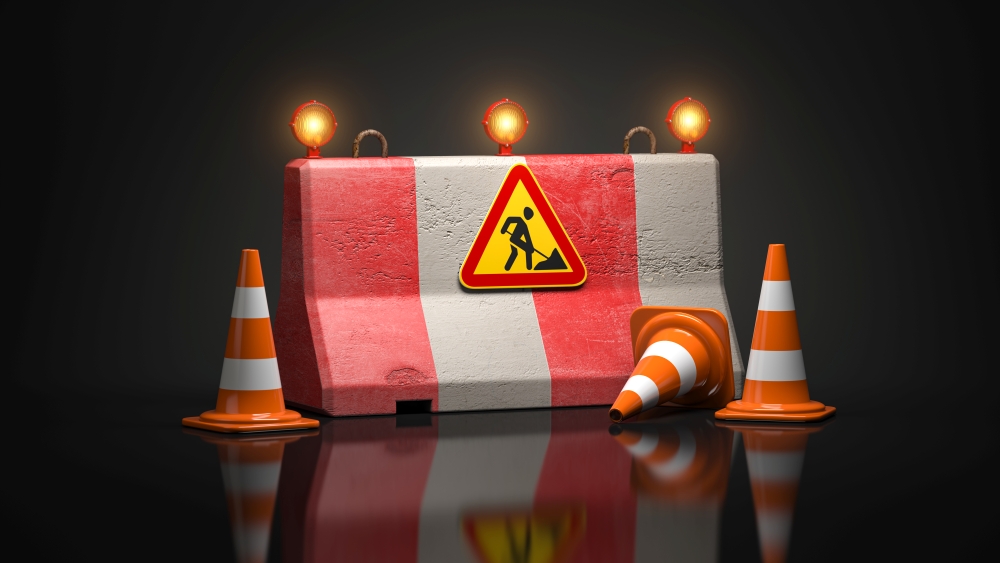Report: Electrification of US Medium- and Heavy-Duty Commercial Fleets Requires Nearly $1 Trillion

Full electrification of the US commercial truck fleet would require nearly $1 trillion in infrastructure investment alone, according to Forecasting a Realistic Electricity Infrastructure Buildout for Medium- & Heavy-Duty Battery Electric Vehicles, a new report from Roland Berger released today by the Clean Freight Coalition. The study forecasts a realistic infrastructure buildout for the electrification of medium- and heavy-duty commercial vehicles, exposing what the CFC calls a massive investment gap as state and federal policymakers mandate increased adoption rates of battery-electric commercial vehicles.
The CFC, which consists of several transportation association stakeholders, says that policymakers must address these cost concerns and infrastructure hurdles to ensure that an electrified supply chain functions smoothly for the American economy.
According to the report, preparing the current commercial vehicle fleet for electrification would cost the trucking industry over $620 billion solely in utility and infrastructure expenses. This includes the installation of specialized chargers, electric service upgrades, and facility enhancements. Additionally, utility companies would need to invest $370 billion to upgrade grid networks to meet the demands of just commercial vehicles.
It is important to note that the estimated $1 trillion expenditure does not account for the cost of new battery-electric trucks, which market research suggests can be two to three times more expensive than their diesel-powered counterparts.
“Electrification means focusing on the vehicle segments that are easier first; it means that we have to look at how fleets operate and potentially adjust; it means that we need better cooperation and planning across industries and governments; and it requires an openness to alternative technology paths to decarbonizing the heavy-duty segment,” said Roland Berger Senior Partner Dr. Wilfried Aulbur. “It also is clear that an industry with a yearly turnover of about $800 billion and a profit margin around 5% cannot invest $620 billion without financial support or a significant increase in freight rates.”
Peter Pantuso, President and CEO of the American Bus Association (ABA), commented, “Forcing the transportation sector to transition to electric vehicles, without considering the totality of what’s involved, makes no sense. This study is a wakeup call and should change the conversation. The U.S. bus industry has a strong environmental record, taking cars off the road and reducing congestion. We’ll continue to support climate initiatives, but they need to be grounded in reality, and the reality is: charging infrastructure has a long way to go before EV transition can succeed.”
The CFC, which consists of transportation stakeholders across the trucking and motorcoach industries like ABA, says that policymakers must address these cost concerns and infrastructure hurdles to make an electrified supply chain function smoothly for the American economy. The study found that while medium-duty vehicles will face fewer roadblocks, economic and operational constraints make electrification challenging for the heavy-duty segment. Furthermore, the study outlined the significant improvements in battery range and charging infrastructure capabilities needed to support a path for the electrification of longhaul vehicles.
CFC Executive Director Jim Mullen thanked Roland Berger for their comprehensive examination of the infrastructure challenges associated with electrifying commercial vehicles. Mullen stated, “This study thoroughly examines the issues surrounding infrastructure buildout necessary to electrify commercial vehicles, and clearly shows how the heavy-duty vehicle industry’s needs are vastly different not just from other sectors of our economy, but from each other. I want to thank the team at Roland Berger for so clearly outlining the challenges electrifying our supply chain poses as the industry and nation continue working toward our shared goal of reducing trucking’s impact on the environment.”
The CFC has a history of working closely with federal regulators to develop effective regulations. They argue that the current regulation negatively affects the environment and road safety. Many motor carriers are opting to prolong the use of their current vehicle fleets to avoid the high costs associated with acquiring new vehicles and uncertainties in meeting operational needs. However, these older trucks are less environmentally friendly and pose safety risks compared to newer models.
This report by Roland Berger sheds light on the challenges of transitioning the industry to 100% Battery Electric Vehicles (BEVs), emphasizing the significant capital investments and upgrades needed for utility distribution and transmission. Yet, the potential impact on the nation’s supply chain integrity cannot be overlooked. CFC’s stakeholder organizations advocate for policies that support a sustainable and cost-effective transition to zero-emission commercial vehicles while ensuring the integrity of the supply chain. According to the CFC, the EPA’s proposed Phase 3 Greenhouse Gas (GHG) regulation falls short of meeting this policy standard.
Links:
Paying the Bill (Key Takeaways)
About the American Bus Association
The American Bus Association (ABA) is the trade organization of the intercity bus industry, with more than 1,000 motorcoach and tour company members in the United States and Canada. Its members operate charter, tour, regular route, airport express, special operations and contract services. Another 2,800 members are travel and tourism organizations and suppliers of bus products and services who work in partnership with the North American motorcoach industry.
Contact
Ben H. Rome, Director of Communications, ABA
Office: (202) 218-7220
Email: [email protected]
About the Clean Freight Coalition
The Clean Freight Coalition is an alliance of transportation stakeholders committed to a clean energy future for America’s commercial vehicle industry. Participating associations span motor carriers of every size and sector, truck dealers, truck stop operators and bus industry. Learn more at www.cleanfreightcoalition.org
About Roland Berger
Roland Berger is the only management consultancy of European heritage with a strong international footprint. As an independent firm, solely owned by our Partners, we operate 51 offices in all major markets. Our 3000 employees offer a unique combination of an analytical approach and an empathic attitude. Driven by our values of entrepreneurship, excellence and empathy, we at Roland Berger are convinced that the world needs a new sustainable paradigm that takes the entire value cycle into account. Working in cross-competence teams across all relevant industries and business functions, we provide the best expertise to meet the profound challenges of today and tomorrow.
